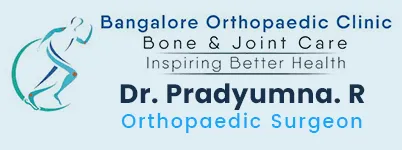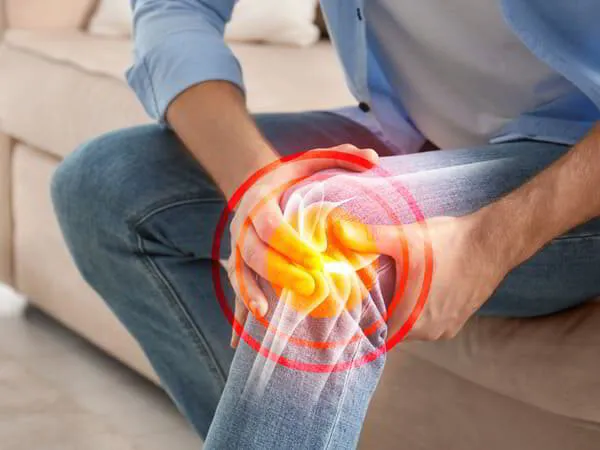Knee & Lower Leg pain
Home / Injuries & Conditions / Knee & Lower Leg pain
Dr. Pradyumna R carefully evaluate your conditions and symptoms associated to your knee pain or knee injuries, based on the diagnostic report and scan he would suggest if so, you are a candidate for Knee & Lower Leg pain treatment, he is an highly experienced knee pain treatment specialist provides diagnosis as well as surgical and nonsurgical treatment options at Bangalore Orthopaedic Clinic, in BTM Layout, Bangalore.
If you have any queries or would like to schedule an appointment for knee pain or knee injury treatment consultation please call +919113025188.
What are the causes of knee pain?
Knee pain can be quite a nuisance and may affect your work and daily activities. Some causes of knee pain are apparent such as tearing of ligaments or cartilage because of trauma at work, active individual or professional sport athlete to some kind of arthritis. The anterior aspect of your knee can be affected by problems in the cartilage and tendons around the knee cap, or patellar tendonitis.
What are the symptoms of Knee pain?
Knee pain symptoms vary from person to person. The pain can range from mild to severe and may be constant or come and go. You might feel knee pain in the front, back or side of your knee. It could also be felt in your knee joint or thigh. If you experience any of the following symptoms, it’s important to see a doctor right away to prevent further injury:
- Pain, swelling and redness around the knee joint
- Fever due to infection
- Weakness or instability
- Not able to fully straighten knee
- Redness and warmth to the touch
- Crunching, popping and clicking sounds when you move or bend your knee
- Stiffness and inability to fully straighten the leg
What are the specific Knee conditions?
Some of the wide range of Conditions we treat
- Meniscal Tear
- Meniscal Injuries
- Medial Meniscus Syndrome
- Lateral Meniscus Syndrome
- Meniscal Tears
- Ligament Injuries
- Cartilage injuries
- Iliotibial Band Syndrome
- Collateral Ligament Sprain
- Patellofemoral Pain Syndrome
- Medial Tibial Stress Syndrome
- Patellar Tendonitis
- Gastrocnemius Strain
- Anterior Cruciate Ligament Injuries (ACL)
- Arthritis of the Knee
- Knee Pain
- Lateral Collateral Ligament Injury (LCL)
- Medial Collateral Ligament Injury (MCL)
- Meniscus Tear
- Posterior Cruciate Ligament Injury (PCL)
- Multiligament Instability
- Patellar Dislocation/Patellofemoral Dislocation
- Patellar Instability
- Patellofemoral Instability
- Recurrent Patella Dislocation
- Chondral (Articular Cartilage Defects)
- Osteochondritis Dissecans
- Tibial Eminence Spine Avulsions
- Quadriceps Tendon Rupture
- Patella Fracture
- Patella Tendon Rupture
- Knee Arthritis
- Fractures around the Knee
- Anterior Knee Pain
- Runner’s Knee
- Chondromalacia Patella
- Osgood Schlatter Disease
- Jumper’s Knee
- Bursitis
- Baker’s Cyst
- Iliotibial Band Syndrome
- Lateral Patellar Compression Syndrome
- Shin Splints
- Knee Sprain
- MCL Sprain
- Patellar Tendinitis
- Sports injuries and overuse syndromes
How are knee pain diagnosed?
You may be asked for complete medical history, and run few diagnostic test include, X-ray, Magnetic resonance imaging (MRI), computed tomography scan (also called a CT or CAT scan), Arthroscopy & Radionuclide bone scan.
When to see a doctor
Most cases of knee pain will get better on their own or with simple self-help treatments. Always seek medical attention if you experience severe knee pain after a fall or an accident. Seek immediate care from a health care provider if severe knee pain is accompanied by numbness, weakness or tingling. Do not try to ignore the pain or give it time to go away on its own.
What treatments are available for Knee pain?
Treatment for anterior knee pain will depend on the location and cause of the pain. Most anterior knee pain is caused by biomechanical dysfunction. Some patients may be candidates for arthroscopic surgery to remove torn cartilage or correct loosened meniscal fragments. In most cases, strengthening, range of motion, and functional rehabilitation can restore function and relieve pain.
Knee pain can be caused by various factors. It is often a result of a sports injury, improper muscle use, or trauma. Treatment can vary depending on the source of pain. Most knee pain can be managed through a combination of RICE (rest, ice, compression and elevation), physical exercises and rehabilitation. However, some cases require more specialized treatment that may include surgery.
Your Doctor will recommend the most appropriate treatment for the patient to relieve any knee pain. This usually requires rehabilitation, such as physiotherapy, to improve function and movement of the knee and strengthen muscle around the knee. Surgery may be required for patients with advanced or progressive disease that is not responding well to medical treatments.
The aim of knee surgery is to relieve pain and restore function. Exactly what treatments the surgeon recommends depends on the cause of your symptoms, and the condition of your bones, joints and soft tissues.
Your treatment will depend on the cause of your pain. Options include physical therapy, injections, and surgery for arthritis.
For more information on Knee & Lower Leg Pain or painful knee, can't move your knee or can't put any weight on your knee, knee locks, clicks, knee injury diagnosis and treatment options available, please call +919113025188 Dr. Pradyumna R, Interventional Pain Management specialist serving BTM Layout, Bangalore City.

